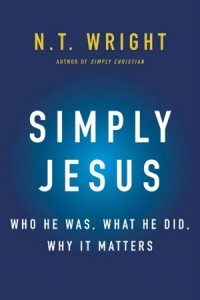Make no mistake about it; I am a huge nerd. I got a small book order in the mail yesterday, and I am so excited to dive into these books! Check them out:

The King Jesus Gospel by Scot McKnight is one of the books I’ve been waiting to get my hands on for a while. Though it did come out this year, I wasn’t able to pick up a copy right away. But now that I have it, I’m very much looking forward to reading it. McKnight is, for me, a breath of fresh air. So much of contemporary evangelicalism has been bifurcating between the emergent church (Brian McLaren, Tony Jones, Chris Seay, and you could throw Rob Bell in there as well) and the neo-reformed movement (Mark Driscoll, Francis Chan, David Platt, with John Piper playing the role of the Godfather). I don’t identify with either of those groups–the former because they seem to be throwing the baby out with the bathwater, and the latter because they’ve made the tub so small the baby doesn’t fit in it anymore. While I don’t agree with all of McKnight’s views either (for example, I’m not a pacifist), I find that he is a reasonable voice of Arminian centrism within American evangelicalism, and perhaps the only one. All of the popular-level, American evangelical pastor-theologians seem to be coming from a Calvinist perspective. I’m beginning to feel like an evangelical without a place in American evangelicalism, and I’m curious to see what will happen to believers who, like me, reject reformed soteriology. Will there be an evangelicalism for us? This is why I’m so excited to read The King Jesus Gospel.

Ember’s next preaching series will be through the book of Titus. Because I somehow managed to make it through seminary with barely a commentary to my name (thank you, Gordon-Conwell library!), I try to purchase the best commentary for each book and rely on the work of that scholar. Towner’s commentary on the Pastoral Epistles comes highly recommended from several sources, and is a part of an important commentary series, The New International Commentary on the New Testament, which is edited by the brilliant Gordon Fee.
When I get a commentary, I try to find one that’s been written recently. This is not because I’m a cultural snob (though I probably am), but because the newer commentaries, at least the good ones, will deal with the most important, relevant, and best material from the older commentaries. Biblical studies is a field that has developed and changed over time, and methods of interpretation have evolved since the Bible was first written. A good commentator will give you the best thoughts of those who have written before him, as well as adding the best of his own research and thinking.

I am a huge, huge fan of N.T. Wright. His books, particularly The New Testament and the People of God, Jesus and the Victory of God, The Challenge of Jesus, and What Saint Paul Really Said (as well as his more popular level works like Simply Christian, Surprised by Hope, and After You Believe) have dramatically changed the way I think about and live out my faith. For so long I had been hoping that he would put out a translation of the Bible, and here it is! I’m so looking forward to adding The Kingdom New Testament to my devotional reading, as well as to my study, particularly for the upcoming Titus series at Ember. I’ve had a chance to briefly scan through his translation, as well as read the introduction, and I think it’s going to be very good. I’m particularly interested in reading his translation of Romans, because he once quipped that if you’ve only read Romans in the NIV, then you’ve never really read Romans. I have been reading the new NIV this year in my reading plan, but that’s already taken me all the way through the New Testament, so I’m going to substitute The Kingdom New Testament on the second go around.

And then there’s this last book, Simply Jesus. It’s also by N.T. Wright, and I don’t know anything about it. I had no idea he was writing about Jesus again; but I suppose this could also just be an updated version of The Challenge of Jesus. Whatever it is, I’m very excited to dive into it, as I’m sure that anything Wright writes on Jesus won’t disappoint.
I don’t know what kind of a value you place on reading, but I can honestly tell you that I would not be where I am, who I am, or doing what I’m doing right now if it weren’t for the books I have read in the past decade. Reading is my primary form of learning. I take in information, process it internally or here on the blog, and then it slowly integrates its way into my life, forming me and shaping me. I believe this process is taking place under the guidance of the Holy Spirit, and it is a part of what he is doing in and through me to conform me into the image of the Son of God. Not only that, but as the pastor of a church, I take it as my responsibility to engage with serious thinking regarding Scripture, Theology, and Doctrine on behalf of the congregation, and then to translate that information in such a way that it works into their hearts as it has worked into mine. That is part of what I try to do in my preaching, and also, in a freer way, here at the blog.
Before I can get to these books, I have to finish King’s Cross by Tim Keller, which is also an excellent read. I hope to get back into the habit of doing book reviews here. Lord knows I’ve got plenty of good material to work with!





